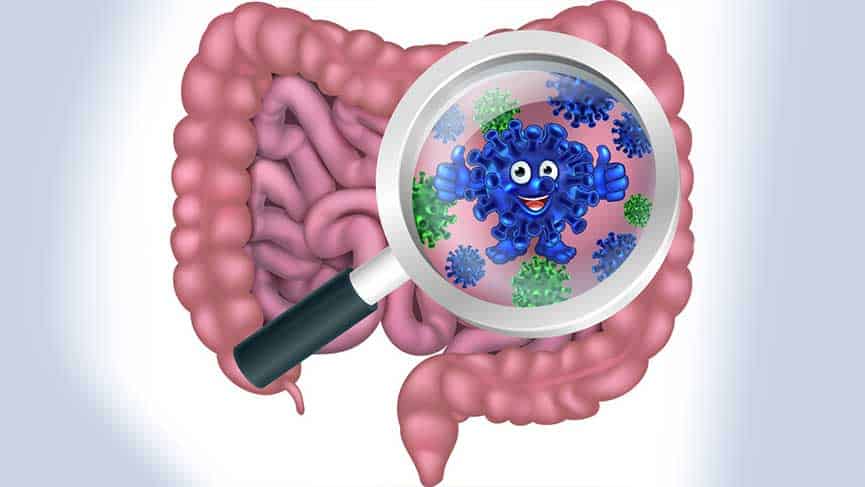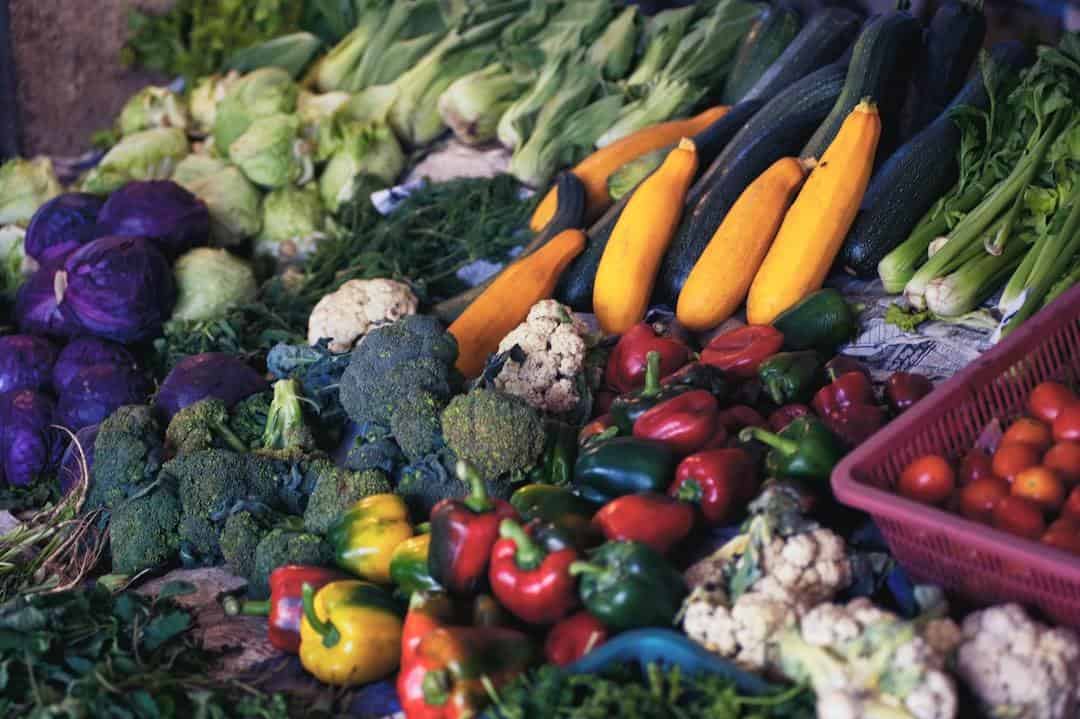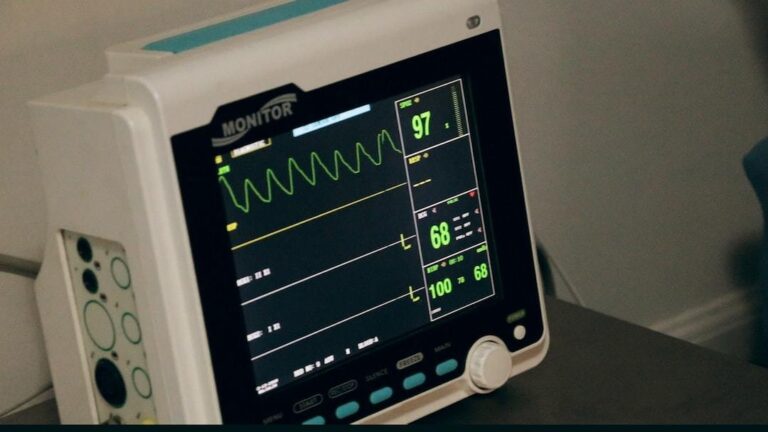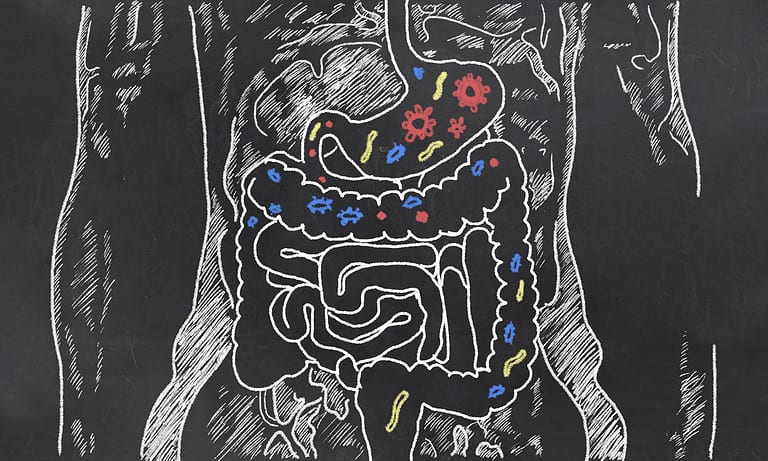How Long Does It Take to Heal Gut Microbiome: An Overview
How long does it take to heal gut microbiome? This complex question has no one-size-fits-all answer, as various factors contribute to the time required for restoring optimal gut health. In this thorough post, we’ll delve into the complexities of gut microbiome healing and provide useful information for you and your loved ones.
We’ll begin by discussing individual biochemistry and genetic predisposition, which play a crucial role in determining how quickly your unhealthy gut can recover. Next, we’ll explore existing medical conditions that may affect your journey toward a healthy gut.
Furthermore, we will discuss key factors influencing gut microbiome diversity and the significant role diet plays in shaping microbial balance. Lastly, we’ll address challenges posed by pathogenic bacteria biofilms and steps you can take towards restoring good bacteria during antibiotic use. By gaining knowledge of these facets concerning the time it requires to restore the gut microbiome, you can make decisions that will aid in keeping good health for a long period.
Table of Contents
- Factors Affecting Gut Microbiome Healing Time
- Influencing Gut Microbiome Diversity for Optimal Health
- Rebuilding Your Gut Flora After Antibiotics
- FAQs in Relation to How Long Does it Take to Heal Gut Microbiome
- Conclusion
Factors Affecting Gut Microbiome Healing Time
So, “How long does it take to heal gut microbiome?” The healing of the gut microbiome is influenced by each person’s biochemistry, heredity, and existing medical issues. Conditions like Lyme disease, blood sugar issues, adrenal fatigue, SIBO (small intestinal bacterial overgrowth), autoimmune disorders, or candida overgrowth can slow progress. Noticeable changes typically occur around the two-year mark for patients with these issues.
Individual Biochemistry and Genetic Predisposition
Your unique biochemistry and genetics play a significant role in determining the answer to the question, “How long does it take to heal gut microbiome?” Some individuals may have a naturally more diverse microbial community that is better equipped to bounce back after disruptions such as antibiotic use or dietary changes.
Others might be genetically predisposed to certain health conditions that affect their gut flora balance negatively. To understand your personal situation better, consider consulting with a functional medicine practitioner who can help identify any underlying factors contributing to your gut health challenges.
Existing Medical Conditions Affecting Gut Health
- Lyme Disease: This tick-borne illness often leads to chronic inflammation and immune system dysfunction, which could impact the diversity of microbes within your gastrointestinal tract.
- Blood Sugar Issues: Imbalances in blood sugar levels can cause an overgrowth of harmful bacteria while suppressing beneficial ones – leading to further complications in restoring optimal gut health.
- SIBO (Small Intestinal Bacterial Overgrowth): An excessive amount of bacteria residing in the small intestine disrupts nutrient absorption processes and damages the intestinal lining – making it difficult for healthy microbes to thrive effectively.
- Candida Overgrowth: An imbalance of yeast in the gut can lead to a variety of symptoms, including digestive issues and weakened immune function. Restoring balance requires addressing this overgrowth through dietary changes and targeted supplementation.
- Autoimmune Disorders: Conditions such as celiac disease or inflammatory bowel disease (IBD) often result from an imbalanced gut microbiome which triggers inflammation – prolonging the healing process for those affected by these disorders.
Influencing Gut Microbiome Diversity for Optimal Health
Gut microbiome diversity plays a significant role in maintaining good health. Factors that influence this diversity include gender, age, geographic location, and socio-economic conditions alongside diet and existing medical conditions. Providing the right environment through dietary choices allows microbes to thrive.
Key factors influencing gut microbiome diversity
- Gender: Research has shown that men and women have different gut microbial compositions, which can be attributed to hormonal differences and lifestyle factors. For example, one study found that women had higher levels of Bacteroidetes while men had more Firmicutes.
- Age: As we age, our gut microbiota changes due to alterations in immune function, gastrointestinal transit time, and dietary habits. A healthy elderly individual’s gut microbiota is typically less diverse than younger adults.
- Geographic location: The geographical area where you live can also impact your gut flora because local diets vary based on available foods as well as cultural preferences; hence people from different regions may have distinct microbial profiles.
- Socio-economic conditions: Poor living standards are often associated with reduced access to fresh, diverse foods and increased consumption of processed or fast food. This can lead to a less diverse gut microbiome.
- Diet: A diet rich in fruits, vegetables, whole grains, legumes, and fermented foods promotes the growth of good bacteria while reducing harmful ones. Conversely, diets high in sugar and unhealthy fats can negatively impact gut flora.
- Existing medical conditions: Certain health issues like irritable bowel syndrome (IBS), inflammatory bowel disease (IBD), or obesity are known to alter the composition of the gut microbiota.
Role of diet in shaping microbial balance
Your dietary choices have a significant influence on your gut microbiome’s diversity. To promote optimal health through balanced microbes, consider incorporating these habits into your daily routine:
- Consume a diet rich in fiber from plant sources, like fruits, veggies, and whole grains; these provide prebiotics that feed beneficial bacteria.
- Consume fermented edibles, like yogurt, kefir, or sauerkraut, to enhance levels of healthy bacteria in your digestive system.
- Avoid excessive intake of sugars and unhealthy fats, which may disrupt the microbial balance by promoting inflammation within the gastrointestinal tract.
- Limit antibiotic use when possible since they can wipe out both good and bad bacteria indiscriminately.
Rebuilding Your Gut Flora After Antibiotics
Pathogenic bacteria often reside within biofilms which makes it difficult for antibiotics to penetrate effectively. This leads many people who have undergone multiple rounds of antibiotic treatment to require six months or longer to fully rebuild their microbiomes. To restore your gut flora after antibiotics, start looking after it even while you’re still taking the medication by making appropriate dietary choices and incorporating probiotics into your routine. Source
Source
Challenges posed by pathogenic bacteria’s biofilms
Biofilms are protective layers formed by bacterial colonies that allow them to adhere to surfaces and resist external threats like antibiotics. These complex structures can be found in various environments, including our gastrointestinal tract, where they contribute significantly to antibiotic resistance.
Steps toward restoring gut flora during antibiotic use
- Maintain a healthy diet: Consuming a balanced diet rich in whole foods such as fruits, vegetables, lean proteins, and whole grains helps create an environment conducive to beneficial microbes. Avoid processed foods high in sugar or unhealthy fats, as these can negatively impact the balance of good versus bad bacteria.
- Incorporate fermented foods: Fermented foods like yogurt, kefir, sauerkraut, kimchi, or kombucha contain live microorganisms that can help replenish the gut with beneficial strains lost due to antibiotic usage.
- Add prebiotic-rich food sources: Prebiotics are non-digestible fibers that serve as food for probiotics, promoting their growth and activity. Prebiotic-rich food sources such as garlic, onions, leeks, asparagus, bananas, and whole grains should be incorporated into meals for optimal results.
- Take a quality probiotic supplement: A probiotic supplement can help introduce beneficial bacteria directly into your gut. Choose a product with multiple strains of bacteria and follow the recommended dosage instructions to ensure optimal effectiveness.
- Avoid unnecessary antibiotic use: Only take antibiotics when prescribed by a healthcare professional for bacterial infections. Using them unnecessarily or not completing the full course may contribute to increased resistance and make it more difficult to restore gut flora balance in the future.
FAQs in Relation to How Long Does it Take to Heal Gut Microbiome
How long does it take to heal gut microbiome?
It may take a few weeks to months for the gut microbiome to be reconstructed. It is critical to stick to a tailored eating regimen that incorporates lots of probiotic-rich sustenances, in addition to prebiotics and fiber-rich fruits and vegetables.
Additionally, taking probiotic supplements may help speed up the process. Engaging in physical activity, ensuring adequate rest periods, minimizing stress, and abstaining from processed food is also key to reconditioning the gut microbiome correctly.
How long does it take for probiotics to change the microbiome?
It may take a few days to start seeing changes in the microbiome from probiotics, though it could be up to two weeks for substantial shifts. Depending on the type of probiotic and its goal, results may be detectable in a single day or could require multiple months of regular use before any visible effects are noticed. Results may differ depending on dietary and lifestyle choices.
Conclusion
Investing effort to comprehend, mend, and sustain a healthy gut microbiome can be advantageous for long-term well-being. Although healing your gut microbiome may take some time, depending on individual factors, it’s worth investing in as you will reap the rewards of improved digestion and better immune system functioning.
How long does it take to heal gut microbiome? Depending on what needs to be addressed within your own unique system – from diet changes to lifestyle modifications – the timeline for restoring balance could range anywhere from several weeks up to six months or more.
Take charge of your health and well-being by learning how to heal your gut microbiome. With our resources at Smart Living Now, you can get the guidance you need for a healthier lifestyle today!






